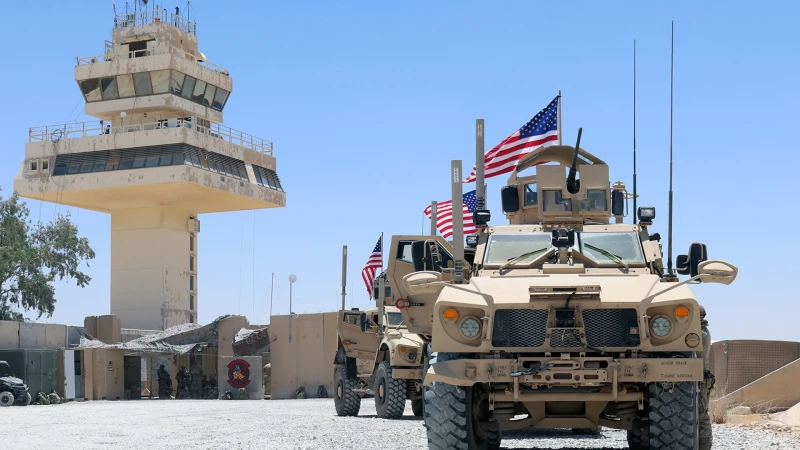ERBIL, Kurdistan Region of Iraq - Despite the signing of a bilateral water agreement between Iraq and Turkey on Sunday, experts and political figures told The New Region that Iraq's intractable water scarcity and climate change vulnerability have been neglected in mainstream politics, with candidates for upcoming parliamentary elections having paid little heed to the issue.
Observers say this neglect is tied to narrow electoral interests. Candidates prefer to focus on topics that bring more votes, not those requiring scientific solutions and long-term reforms. As a result, the water and climate crisis is excluded from campaign messaging in favor of short-term, populist slogans.
In a previous statement, Iraqi Minister of Water Resources Aoun Diab Abdullah said that the country is facing a severe water crisis, and that water storage does not exceed 8 percent of total capacity. The crisis has become more obvious and is directly affecting citizens, especially in the southern provinces, with the statement noting that Iraq’s geography places it in a difficult position as a lowland basin strongly affected by climate change and global warming.
The minister added that more than 70 percent of Iraq’s water resources come from Turkey through the Tigris and Euphrates rivers. Low rainfall and snowfall in recent years, along with major Turkish dams and reservoirs, have sharply reduced Iraq’s water share.
Iraqi Foreign Minister Fuad Hussein and his Turkish counterpart Hakan Fidan on Sunday signed the Framework Cooperation Agreement on Water between the two countries, with the deal being hailed by the Iraqi prime minister's office as "one of the sustainable solutions to Iraq’s water crisis, through a package of major joint projects to be implemented in the water sector aimed at addressing and managing water scarcity challenges."
A lack of emphasis by candidates:
Candidate Dakhel Abdul-Hussein from the Badr bloc told The New Region that most candidates avoid addressing water and climate change in their programs despite the danger and direct impact on citizens.
He said Dhi Qar Province alone saw the displacement of 10,500 families due to drought and environmental damage. Still, the issue is excluded from campaigns in favor of more popular topics like education, services, and unemployment, which are closer to voters’ daily concerns.
Abdul-Hussein said the water crisis is a sovereign and highly sensitive file and must be among the main priorities of the next parliament, because it affects the country’s economic and environmental security.
Environmental activist Raad al-Asadi criticized the lack of realistic vision in most electoral programs. He said many candidates confuse the legislative role with the executive one, offering service promises that are outside their constitutional powers.
Asadi said the climate and water file is almost entirely absent except in rare cases. Campaigns lack strategic planning, and candidates move only within their electoral districts to secure votes rather than adopt a wider national responsibility.
Dr. Ali al-Atabi from the Compass Center for Dialogue and Studies said climate change does not receive real attention in Iraqi election campaigns because most candidates do not believe it influences voter behavior.
He told The New Region that Iraqi voters look for quick fixes to daily problems like jobs, services, and immediate economic relief, while climate change is a long-term issue that does not meet immediate needs.
Atabi added that most candidates do not have enough scientific knowledge about the causes of climate change or ways to solve it. He said the issue requires institutional work and technical expertise, but there is no institution capable of adopting it within political programs.
He warned that raising the climate issue during campaigns, without effective state tools, becomes a political burden, and many political forces avoid major issues that require deep national vision instead of short-term promises.
Global warnings:
A host of international organizations have warned Iraq of the impending chaos caused by climate change, with the International Organization for Migration reporting in 2024 that climate change has displaced more than 170,000 people in 12 provinces, led by Dhi Qar, followed by Maysan and Diwaniyah. The displacement was caused by worsening drought, declining water levels, and increased desertification.
According to the United Nations, Iraq is one of the five most affected countries by climate change in the world. This creates a rising environmental and humanitarian challenge that threatens livelihoods and food security for hundreds of thousands of families.
A 2023 UN Environment Programme report said Iraq may lose about 30 percent of its arable land by 2035 because of severe drought, low water levels, and desertification. This threatens the food security of millions of people.
The World Bank warned at the end of 2022 that Iraq faces an urgent climate crisis that requires a new development model focused on environmental protection. It also called for economic diversification and less dependence on oil and carbon and noted that climate-driven migration may affect one in every five Iraqis by the end of the decade if urgent action is not taken to protect natural resources and improve water management.
The Bank said Iraq will need about $233 billion in climate investments by 2040, equal to 6 percent of its annual GDP, to meet urgent development needs and protect natural resources.



 Facebook
Facebook
 LinkedIn
LinkedIn
 Telegram
Telegram
 X
X


